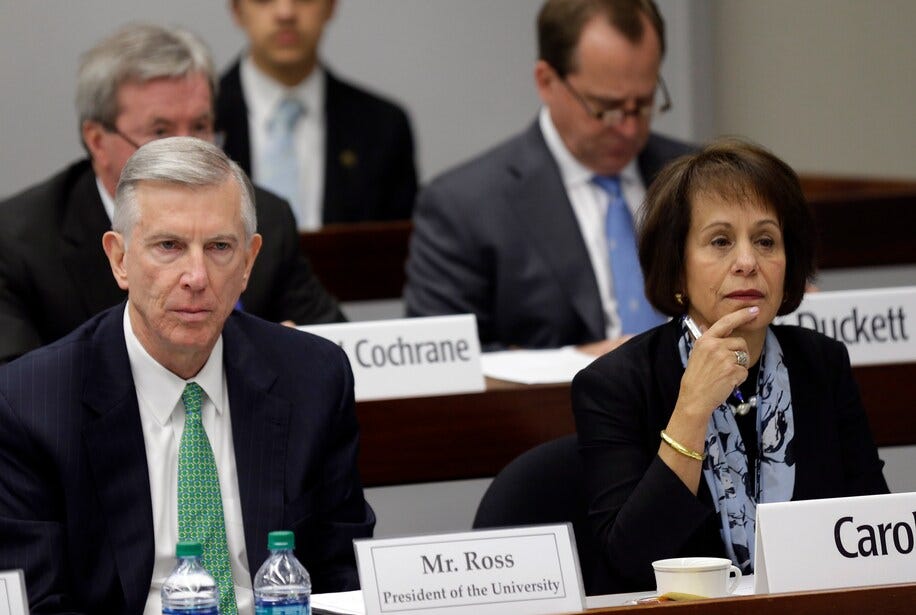USC’s senate censures President Folt and provost over commencement
USC Faculty Votes to Censure President and Provost Over Commencement Controversy.

Introduction
The body representing USC's faculty, the Academic Senate, voted to censure the university's president, Carol Folt, and provost, Andrew Guzman, citing their mishandling of events surrounding the commencement ceremony. While the censure carries no legal force, it reflects the faculty's public expression of anger, disapproval, and frustration during a period of turmoil over graduation and broader concerns about the leadership's decision-making.

The Commencement Controversy
The vote was prompted by several decisions made by Folt and Guzman, including the rescinding of the speaking slot for valedictorian Asna Tabassum, a pro-Palestinian Muslim student. The faculty also expressed dismay over the cancellation of the main-stage commencement ceremony and the university's response to pro-Palestinian protesters on campus, which led to the arrest of 93 protesters, most of whom were students.

Faculty Criticism and Resolution
During the nearly three-hour meeting, faculty members criticized Folt and Guzman for their decisions, calling them a "tragedy of errors." Howard Rodman, a professor at the USC School of Cinematic Arts, stated that the leaders had shown themselves incapable of ethical leadership. The resolution voted on by faculty members cited "widespread dissatisfaction and concern" about the administrators' actions and decisions.
The Censure Vote and Response
The final tally saw 21 members in favor of censuring the president and provost, with seven opposed and six abstaining. This vote, representing approximately three-quarters of senators, highlights the significant discontent among USC's faculty, which numbers more than 4,500. In response to the vote, Folt expressed her commitment to working with the Academic Senate and the wider faculty, acknowledging the diverse viewpoints within the Trojan community regarding recent decisions.
Faculty's Call for Accountability
Some faculty members believe that the censure is a necessary step to hold the administration accountable for its actions. Devin Griffiths, an associate professor of English and comparative literature, stated that he hoped the vote would prompt Folt and Guzman to be more invested in shared governance. However, not all faculty members were in agreement with the censure, with some, like chemistry professor Anna Krylov, arguing that it was unjustified.
Conclusion
The censure vote reflects the deep divisions within the USC community over the handling of commencement and the broader leadership issues at the university. As Folt and Guzman face criticism and calls for accountability, the future of their leadership and the university's response to faculty concerns remain uncertain.


